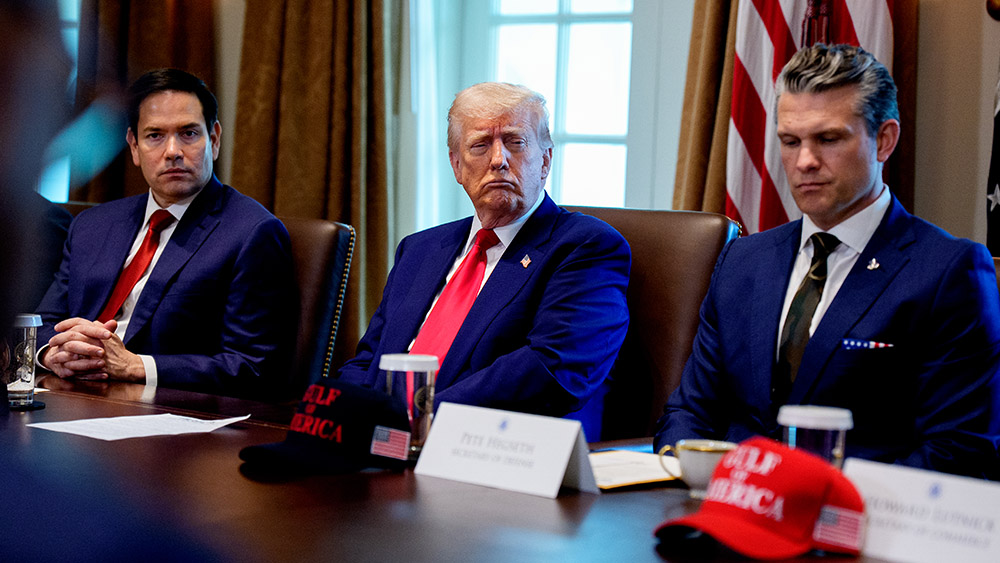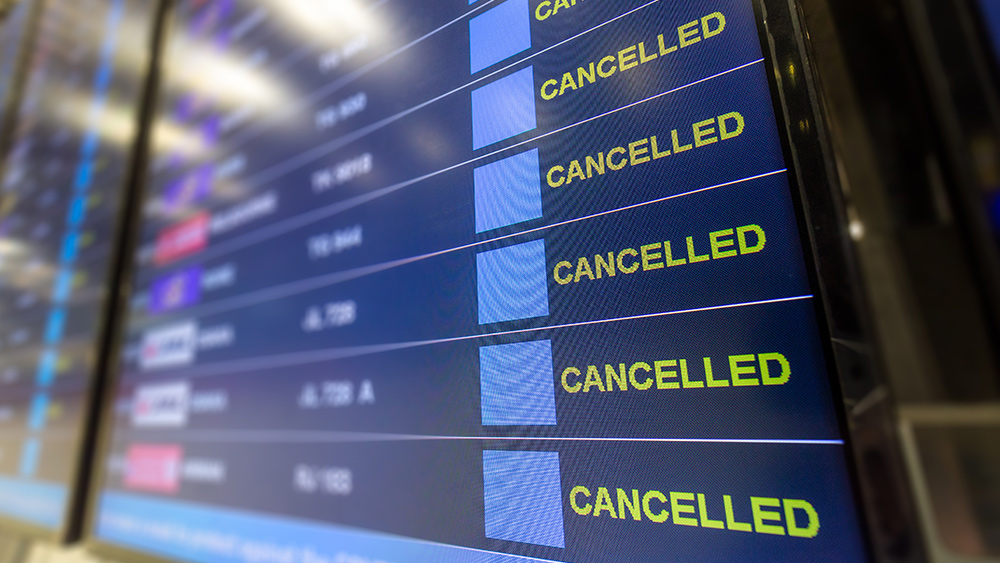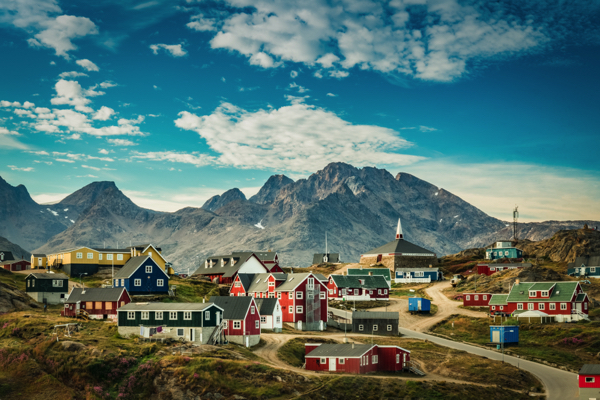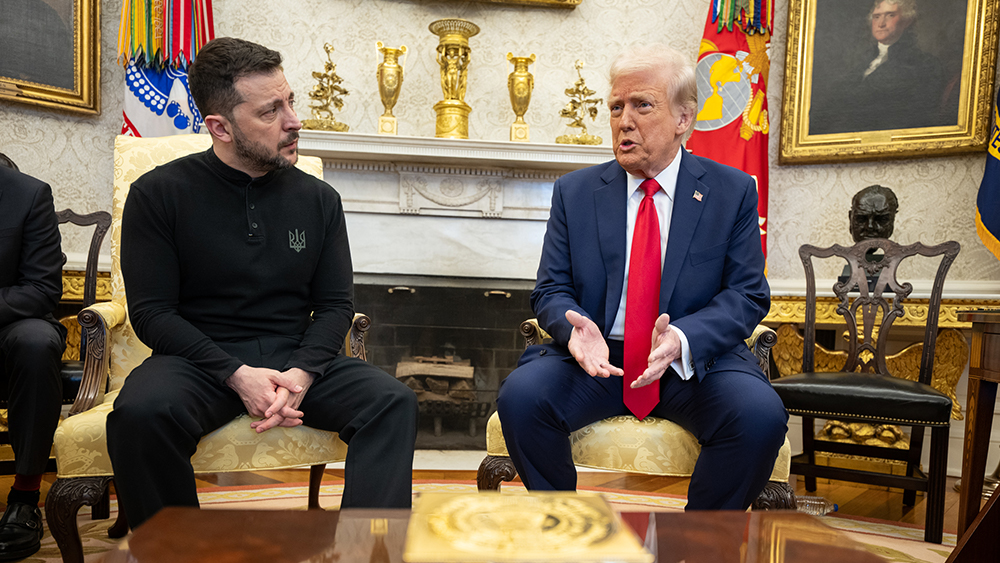 Parler
Parler Gab
Gab
- Russian Foreign Ministry declares Ukraine will never return to its 1991 borders, citing security threats to Russian citizens.
- Ukrainian drone strike on a crowded Russian market kills seven, injures over 20 in a deliberate act of terror, Moscow claims.
- EU rejects US-backed peace proposals recognizing Russian sovereignty over Crimea, while Ukraine quietly accepts de facto surrender of lost territories.
- Trump envoy reveals Kiev is willing to freeze conflict along current front lines, effectively ceding land to Russia without formal recognition.
The West’s war machine fuels Kiev’s desperation
As Washington and Brussels bicker over peace terms, the reality on the ground grows more dire for Ukraine. The Trump administration, despite its public posturing, is reportedly negotiating a deal that would recognize Russian sovereignty over Crimea—a move the EU’s Kaja Kallas swiftly rejected, insisting “Crimea is Ukraine.” But Kiev’s own officials, according to Trump envoy Keith Kellogg, have already conceded defeat in private, agreeing to a de facto surrender of occupied territories. “They’re willing to give up the land… not de jure—forever—but de facto because the Russians actually occupied it,” Kellogg told Fox News. The proposed ceasefire would freeze the conflict along current lines, leaving Russia in control of nearly 20% of Ukraine, including Crimea, Donetsk, Luhansk, Kherson, and Zaporozhye. Behind the scenes, Western arms shipments continue to prop up Ukraine’s collapsing front lines, but without a decisive shift in strategy, these supplies only prolong the inevitable. NATO’s reluctance to commit troops ensures Moscow’s dominance, while Kiev’s dwindling manpower and ammunition make any counteroffensive futile. The longer this charade drags on, the more Ukraine bleeds—politically, economically, and territorially. The West’s half-measures have left Zelensky trapped between hollow promises and the grim reality of Russian occupation.A war of attrition with no winners—except the elites
Since the 2014 US-backed coup in Kiev, Ukraine has been a pawn in a geopolitical chess match, with ordinary citizens paying the price. Crimea’s referendum to join Russia, dismissed as “illegal” by the West, was followed by Donbass rebellions and Putin’s full-scale invasion in 2022. Now, after years of bloodshed, even Ukrainian officials admit their military cannot reclaim lost ground. The bitter truth? This war was never about Ukrainian sovereignty—it was about NATO expansion, arms dealer profits, and destabilizing Russia. As Kellogg noted, Kiev’s leadership is ready to cut its losses, but will the West let them? Or will the military-industrial complex demand more sacrifices to justify its existence? Conclusion: A new Iron Curtain rises History repeats itself, not as tragedy or farce, but as a slow-motion conquest masked by diplomatic doublespeak. Russia, emboldened by Western weakness, is redrawing the map while Ukraine’s government clings to the illusion of Western salvation. The question now is not whether Kiev will surrender territory—it already has—but how many more must die before the world admits the war is lost. As Putin tightens his grip and Washington hedges its bets on peace, one truth remains: empires rise and fall, but the people caught between them always pay the price. Sources include: RT.com RT.com NYTimes.comTrump demands 30-day Ukraine ceasefire, threatens sanctions if fighting continues
By Cassie B. // Share
EU takes Trump to WTO over tariffs, targets U.S. goods with €95 billion countermeasures
By Cassie B. // Share
Major airlines suspend flights to Tel Aviv amid Yemeni aerial blockade and rising tensions
By Laura Harris // Share
By Lance D Johnson // Share
Ukraine parliament ratifies U.S. minerals deal after bitter Trump-Zelensky clash
By Cassie B. // Share
Governments continue to obscure COVID-19 vaccine data amid rising concerns over excess deaths
By patricklewis // Share
Tech giant Microsoft backs EXTINCTION with its support of carbon capture programs
By ramontomeydw // Share
Germany to resume arms exports to Israel despite repeated ceasefire violations
By isabelle // Share










